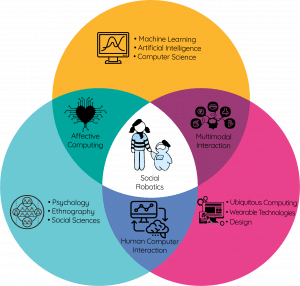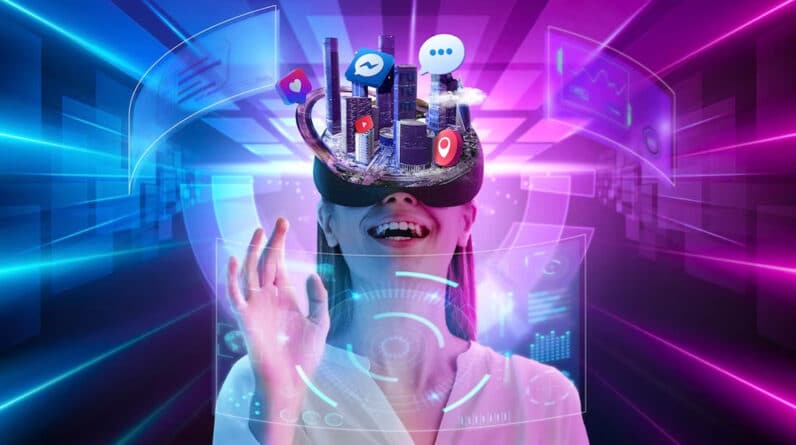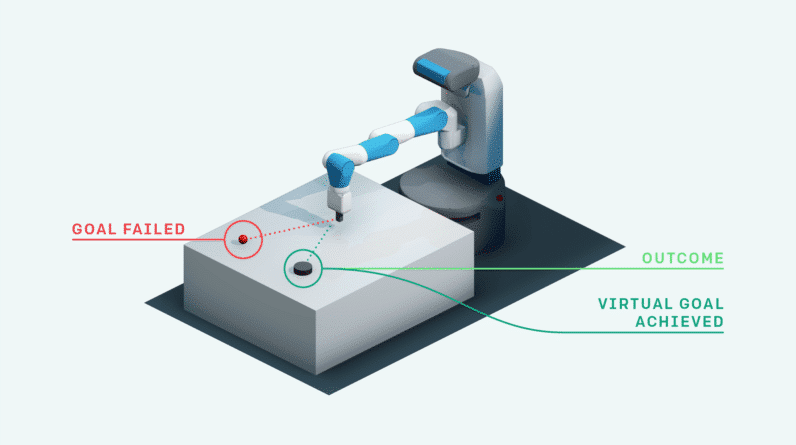In the rapidly evolving landscape of recruitment, artificial intelligence (AI) has emerged as a key player in streamlining hiring processes and enhancing candidate selection. By leveraging advanced algorithms and data analytics, AI effectively identifies the most suitable candidates for a role, significantly reducing time and effort for recruiters. With its ability to analyze vast amounts of information, AI offers a more objective and unbiased approach to screening applicants, leading to more informed hiring decisions. The integration of AI in recruitment is revolutionizing the industry and revolutionizing how organizations find the best talent for their teams.

1. The Role of AI in Recruitment
AI, or Artificial Intelligence, has revolutionized various industries, and recruitment is no exception. With its advanced algorithms and data analysis capabilities, AI is transforming the hiring process in numerous ways. From resume screening to candidate assessment, AI is streamlining and enhancing every stage of recruitment. By leveraging AI technology, companies can improve the efficiency, accuracy, and overall effectiveness of their hiring efforts. In this article, we will explore the different ways in which AI is reshaping recruitment and the benefits it offers to organizations.
1.1 How AI is Transforming the Hiring Process
One of the significant ways in which AI is transforming the hiring process is through automated resume screening. Traditionally, recruiters have to manually review countless resumes to identify potential candidates. This process is not only time-consuming but also prone to human bias. However, with AI-powered resume screening tools, the initial screening stage can be automated. AI algorithms analyze resumes based on predefined criteria, such as skills, experience, and qualifications. This saves recruiters a significant amount of time and allows them to focus on more strategic tasks.
1.2 Benefits of Using AI in Recruitment
The use of AI in recruitment brings several benefits to organizations. Firstly, AI improves the efficiency of the hiring process by automating time-consuming tasks like resume screening and candidate sourcing. This allows recruiters to dedicate their time and energy to more value-added activities, such as interviewing and candidate engagement. Secondly, AI reduces bias in candidate evaluation. By standardizing the evaluation criteria and removing human bias, AI ensures fair and objective assessments, promoting diversity and inclusion. Thirdly, AI enhances the accuracy of candidate screening and matching. With advanced algorithms and data analysis, AI can identify candidates who are the best fit for a particular role, considering both technical and cultural aspects. Overall, the use of AI in recruitment leads to better hiring decisions and outcomes for organizations.
2. AI and Resume Screening
2.1 Automated Resume Screening
Automated resume screening is one of the key areas where AI is making a significant impact in recruitment. Traditional resume screening involves manual review and analysis of resumes, which can be time-consuming and subject to human biases. However, AI-powered resume screening tools leverage natural language processing and machine learning algorithms to automate this process. These tools can quickly scan and analyze resumes, extracting relevant information such as skills, experience, and qualifications. By setting predefined criteria, recruiters can customize the resume screening process to align with the specific requirements of the job. This not only saves time but also ensures a more objective and consistent screening process, increasing the chances of identifying the most suitable candidates.
2.2 Reducing Bias in Candidate Evaluation
Unconscious biases can often influence decision-making in the recruitment process, leading to unfair evaluations and limiting diversity in candidate selection. AI can help address this issue by reducing bias in candidate evaluation. By standardizing the evaluation criteria, AI algorithms can eliminate subjective judgments and focus solely on assessing candidates based on their qualifications and skills. This ensures fairness and equal opportunities for all candidates, regardless of their background, gender, or ethnicity. Utilizing AI in resume screening and candidate evaluation helps organizations create a more inclusive and diverse workforce.
2.3 Enhancing Efficiency and Accuracy in Resume Screening
AI-powered resume screening not only improves the efficiency of the hiring process but also enhances its accuracy. Manual resume screening can be time-consuming, especially when dealing with a large volume of applications. AI algorithms, on the other hand, can process resumes at a much faster rate, significantly reducing the time spent on screening. Moreover, AI is capable of analyzing and comparing a wide range of criteria and indicators to determine the best candidates for a particular role. By considering both technical qualifications and cultural fit, AI can present recruiters with a more accurate shortlist of candidates. This increases the chances of finding the ideal candidate for the job, resulting in better hiring outcomes for organizations.

3. AI and Candidate Sourcing
3.1 Identifying Potential Candidates
In the competitive job market, identifying potential candidates who may not have applied directly is crucial. AI can play a significant role in finding these hidden talents. By analyzing vast amounts of data from various sources, such as social media platforms and professional networks, AI algorithms can identify potential candidates who possess the desired skills and qualifications. This capability expands the talent pool for recruiters and gives them access to a wider range of candidates.
3.2 Utilizing AI for Active Sourcing
Active sourcing involves proactively reaching out to potential candidates and engaging them in the recruitment process. AI can automate and enhance this process by utilizing chatbots and personalized messaging systems. Using natural language processing, AI-powered chatbots can engage in conversations with potential candidates, answering their questions, and providing them with relevant information. This not only saves time for recruiters but also ensures consistent and prompt communication with candidates. Additionally, AI can analyze candidates’ responses and interactions to assess their interest and suitability for the position.
3.3 Streamlining the Sourcing Process
The candidate sourcing process can be time-consuming and overwhelming for recruiters, particularly when searching for specialized or niche skills. AI streamlines this process by automating the search and identification of potential candidates. By leveraging advanced algorithms and machine learning, AI can quickly analyze and match candidate profiles with job requirements. This saves recruiters significant time and effort that can be redirected towards other critical aspects of the hiring process. Additionally, AI can continuously learn and improve its candidate sourcing capabilities, ensuring its relevance and effectiveness in the dynamic job market.
4. AI and Job Matching
4.1 Leveraging AI for Job Matching
Finding the perfect match between candidates and job requirements is a critical aspect of the hiring process. AI can leverage its advanced algorithms and data analysis capabilities to improve job matching accuracy. By analyzing the requirements of a job and the attributes of candidates, AI algorithms can identify the best fit for a particular role. This includes matching not only technical qualifications but also soft skills, personality traits, and cultural fit. By considering multiple dimensions of job and candidate compatibility, AI can provide recruiters with more accurate and personalized recommendations.
4.2 Improving Personalized Recommendations
AI enables personalized job recommendations by analyzing candidate data and preferences. By considering a candidate’s skills, experience, and career aspirations, AI algorithms can suggest jobs that align with their profile and interests. This level of personalized recommendation enhances the overall candidate experience and increases the likelihood of attracting high-quality candidates. Additionally, it helps organizations build a strong employer brand by showcasing their understanding of candidates’ individual needs and aspirations.
4.3 Enhancing Cultural and Skills Fit
AI not only matches candidates to job requirements but also considers cultural fit within organizations. By analyzing candidates’ past experiences, values, and preferences, AI algorithms can assess their compatibility with the organization’s culture. This ensures a more harmonious and productive working environment by aligning candidates’ values and beliefs with those of the organization. Moreover, AI can identify candidates who possess specific skills and qualifications that are crucial for success in a particular role. By considering these factors, AI contributes to enhancing both cultural fit and skills fit, resulting in improved job satisfaction and performance.

5. AI and Chatbot Interviews
5.1 Conducting Automated Chatbot Interviews
AI-powered chatbots are revolutionizing the way interviews are conducted. Instead of traditional phone or in-person interviews, chatbots can engage in automated conversations with candidates. These chatbots are programmed with predefined questions and can provide prompt responses based on the candidates’ answers. Chatbot interviews save time for both recruiters and candidates, as they can be conducted at any time and do not require scheduling conflicts. Additionally, chatbot interviews provide consistent and standardized evaluation, ensuring fair assessments across all candidates.
5.2 Assessing Soft Skills and Behavioral Traits
While technical qualifications are essential, assessing candidates’ soft skills and behavioral traits can be challenging through traditional interviews. AI-powered chatbot interviews facilitate this assessment by analyzing candidates’ responses to determine their communication skills, problem-solving abilities, and emotional intelligence. By leveraging natural language processing and sentiment analysis, AI algorithms can identify patterns and indicators of desirable soft skills and behavioral traits. This enables recruiters to make more informed decisions based on a comprehensive evaluation of candidates’ suitability for the role.
5.3 Evaluating Candidate Engagement
Candidate engagement and interest are crucial factors for both recruiters and candidates during the hiring process. AI-powered chatbot interviews allow recruiters to evaluate candidates’ engagement levels by analyzing their responses, reaction time, and interaction patterns. This valuable data provides insights into candidates’ enthusiasm and commitment, helping recruiters identify candidates who are genuinely interested in the role. By assessing candidate engagement, recruiters can make more accurate predictions about a candidate’s potential success within the organization.
6. AI and Video Interviews
6.1 Automated Video Interview Platforms
AI has transformed the way video interviews are conducted by automating and enhancing the process. Automated video interview platforms utilize AI algorithms to analyze candidates’ recorded responses to predefined questions. By analyzing facial expressions, tone of voice, and body language, AI can provide insights into candidates’ non-verbal communication and emotional cues. Automated video interviews save time and resources for recruiters, as they can record and review candidates’ responses at their convenience. Additionally, these platforms ensure a consistent and fair evaluation process, as all candidates are assessed using the same predefined questions and criteria.
6.2 Analyzing Facial Expressions and Body Language
Traditional interviews often rely on subjective interpretations of facial expressions and body language. However, AI-powered video interviews analyze these non-verbal cues objectively. By leveraging computer vision and machine learning algorithms, AI can detect micro-expressions, eye movements, and other indicators of candidates’ emotions and engagement levels. This enables recruiters to gain deeper insights into candidates’ reactions and assess their suitability for the position. By eliminating subjective interpretations, AI improves the accuracy and objectiveness of evaluating candidates’ non-verbal communication.

7. AI and Candidate Assessment
7.1 AI-Driven Cognitive and Psychometric Assessments
AI-driven cognitive and psychometric assessments have transformed the way candidates are evaluated. These assessments provide valuable insights into candidates’ cognitive abilities, problem-solving skills, personality traits, and other relevant attributes. By leveraging AI algorithms, these assessments can measure and analyze a candidate’s responses in a more standardized and objective manner. This helps recruiters evaluate candidates based on specific competencies required for the role, ensuring a more accurate assessment of their suitability and potential for success.
7.2 Predictive Analytics for Candidate Performance
AI enables the use of predictive analytics to assess a candidate’s potential performance within an organization. By analyzing historical data of successful employees and comparing it with candidates’ profiles, AI algorithms can predict their likelihood of success in a particular role. This predictive analysis is based on factors such as qualifications, skills, previous job performance, and cultural fit. By leveraging these insights, recruiters can make data-driven decisions and increase the chances of selecting candidates who will excel in their roles.
7.3 Reducing Bias in Candidate Assessment
Unconscious biases can influence candidate assessment, leading to unfair evaluations and reduced diversity. AI can help address this issue by reducing bias in candidate assessment. By relying on standardized criteria and predefined algorithms, AI algorithms ensure a fair and objective assessment across all candidates. This enables recruiters to evaluate candidates based on their qualifications, skills, and attributes, without any biases related to gender, age, or ethnicity. Implementing AI-powered candidate assessments promotes fairness, diversity, and inclusion within organizations.
8. AI and Candidate Engagement
8.1 Personalizing Candidate Communications
Effective candidate engagement is crucial for attracting top talent and building a positive employer brand. AI enhances candidate engagement by personalizing communication throughout the recruitment process. AI algorithms analyze candidate preferences, past interactions, and career aspirations to deliver tailored messages and recommendations. This level of personalization creates a more engaging and personalized experience for candidates, making them feel valued and appreciated. By leveraging AI in candidate engagement, organizations can strengthen their relationships with candidates and increase the likelihood of successful hires.
8.2 Enhancing Candidate Experience
AI improves candidate experience by streamlining and simplifying various aspects of the recruitment process. From personalized job recommendations to automated application tracking, AI-powered platforms provide candidates with a seamless and user-friendly experience. This eliminates manual and repetitive tasks, reducing the time and effort required from candidates. Additionally, AI can provide timely and informative updates to candidates, keeping them engaged throughout the process. By enhancing candidate experience, organizations can attract top talent and create a positive perception of their employer brand.
8.3 Automating Follow-Up Processes
Following up with candidates after interviews and evaluating their feedback is a critical step in the hiring process. AI automation tools can streamline and automate this process, ensuring timely and consistent communication. AI algorithms can generate personalized follow-up emails, provide feedback on candidates’ performance, and send reminders for further steps in the process. By automating these follow-up processes, recruiters can save time and ensure that candidates receive the attention and information they need. This contributes to a positive candidate experience and helps organizations maintain strong relationships with candidates.

9. AI and Diversity and Inclusion
9.1 Minimizing Bias in Hiring Decisions
Unconscious biases in hiring decisions can result in a lack of diversity and inclusion within organizations. AI can play a significant role in minimizing these biases by providing objective and data-driven assessments. By standardizing evaluation criteria and removing human bias, AI algorithms ensure fair and equal treatment of all candidates. This promotes diversity and inclusion, as candidates are evaluated solely based on their qualifications, skills, and potential to succeed in the role. Implementing AI in the hiring process helps organizations move towards a more diverse and inclusive workforce.
9.2 Enhancing Diversity in Candidate Pools
AI-powered sourcing and candidate assessment can contribute to enhancing diversity in candidate pools. By utilizing AI algorithms to analyze a wide range of data sources, organizations can identify potential candidates from diverse backgrounds and with unique skill sets. This expands the talent pool, providing recruiters with a broader selection of candidates to choose from. Additionally, AI-driven candidate assessment tools evaluate candidates’ qualifications and potential without any bias, ensuring that diverse candidates are given equal opportunities. By enhancing diversity in candidate pools, organizations can foster an inclusive and innovative work environment.
10. AI and HR Analytics
10.1 Leveraging AI for Data-Driven Insights
AI enables organizations to leverage HR analytics and make data-driven decisions. By analyzing vast amounts of HR data, including candidate profiles, performance evaluations, and employee engagement surveys, AI algorithms can provide insights and trends that help optimize the hiring process. Organizations can identify patterns in successful hires, determine factors contributing to employee satisfaction, and predict future talent needs. This data-driven approach improves the effectiveness and efficiency of HR operations and enhances overall organizational performance.
10.2 Improving HR Decision-Making
AI-powered HR analytics contribute to improving decision-making processes within organizations. By providing accurate and real-time data on recruitment metrics, such as time-to-hire, cost-per-hire, and quality of hire, AI enables HR professionals to make informed decisions. The insights generated by AI algorithms enable organizations to identify areas of improvement, adjust recruitment strategies, and optimize resource allocation. This data-driven decision-making ensures that HR practices align with organizational goals, leading to improved hiring outcomes and overall business success.
In conclusion, AI has transformed various aspects of recruitment, enhancing efficiency, accuracy, and effectiveness. From automated resume screening and candidate sourcing to video interviews and candidate assessment, AI-powered solutions streamline and enhance every stage of the hiring process. AI brings numerous benefits, including the reduction of bias, improvement in job matching, enhancement of candidate engagement, and support for diversity and inclusion initiatives. By leveraging AI technology, organizations can optimize their recruitment strategies, attract top talent, and build a diverse and inclusive workforce.






